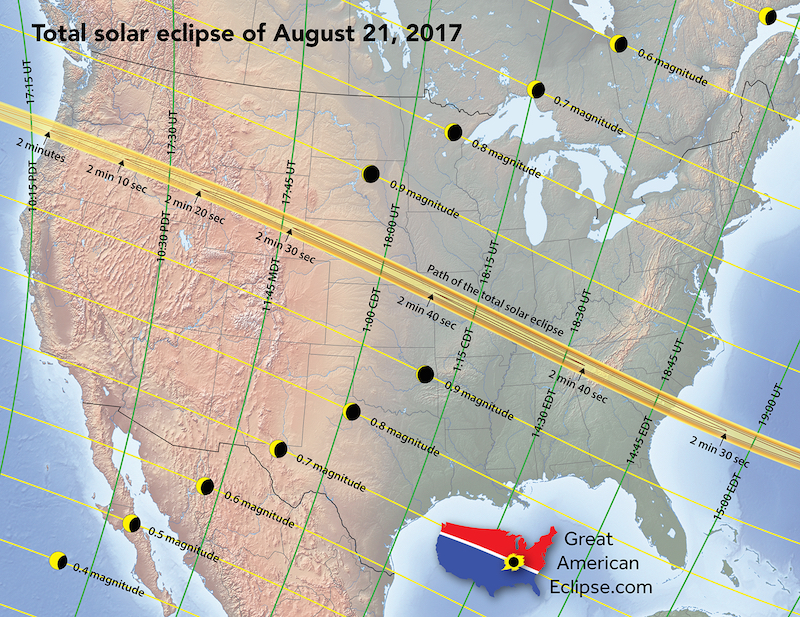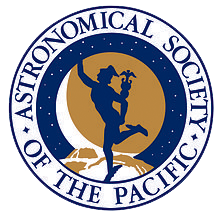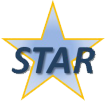On August 21, 2017, a spectacular total eclipse of the Sun will grace the daytime skies across the continental USA along a narrow path from Oregon to South Carolina . Meanwhile, a deep partial solar eclipse will also be visible from the entire North American continent (greater than 60% coverage for the whole continent).
Astronomical events capture the popular imagination, create excitement, and generate tremendous media attention. For educators, this historic eclipse event also represents an unprecedented opportunity for STEM awareness and support of STEM education programs.
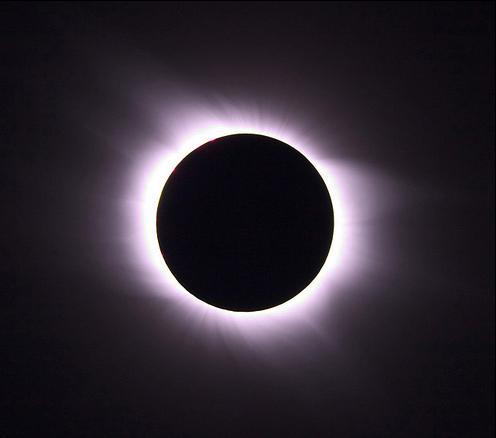
AWB Program
AWB’s unique eclipse program uses the eclipse as inspiration and the starting point for continuing STEM education in schools and institutions across the USA.
Schools, libraries, museums, nature centers, after-school groups, scouts and other across the US are invited! This program particularly seeks educational institutions and groups in underserved communities out including inner cities, Native American reservations, military installation, and children’s hospitals, as well as in isolated rural communities.
AWB will provide a unique educational resource package that includes lesson plans developed by created by professional science educators at Astronomers Without Borders and the Astronomical Society of the Pacific. Optional eclipse-viewing glasses and personal solar spectroscope kits are also part of the activities and lessons.
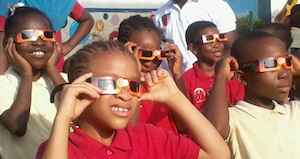 Our nationwide network of amateur astronomy clubs and other volunteers will also provide on-the-ground support to teachers and their institutions, not only for observing the eclipse itself, but with continuing STEM lessons using solar observations and study of the solar spectrum.
Our nationwide network of amateur astronomy clubs and other volunteers will also provide on-the-ground support to teachers and their institutions, not only for observing the eclipse itself, but with continuing STEM lessons using solar observations and study of the solar spectrum.
The solar spectrum and the characteristics of the Sun will be used for lessons in many science fields, not just solar astronomy. Topics may include the Sun as the source of all energy on Earth with discussions about renewable energy and climate change, effects of changing light on plant growth, the Sun as necessary for all life on Earth, weather and climate, and more.
The countdown to the most anticipated astronomical event in decades has begun. Now is the time for educators to seize this special moment in time and leverage the fleeting spectacle of the great American eclipse to plant the seeds of wonderment about the connections between nature and science.






 Our nationwide network of amateur astronomy clubs and other volunteers will also provide on-the-ground support to teachers and their institutions, not only for observing the eclipse itself, but with continuing STEM lessons using solar observations and study of the solar spectrum.
Our nationwide network of amateur astronomy clubs and other volunteers will also provide on-the-ground support to teachers and their institutions, not only for observing the eclipse itself, but with continuing STEM lessons using solar observations and study of the solar spectrum.